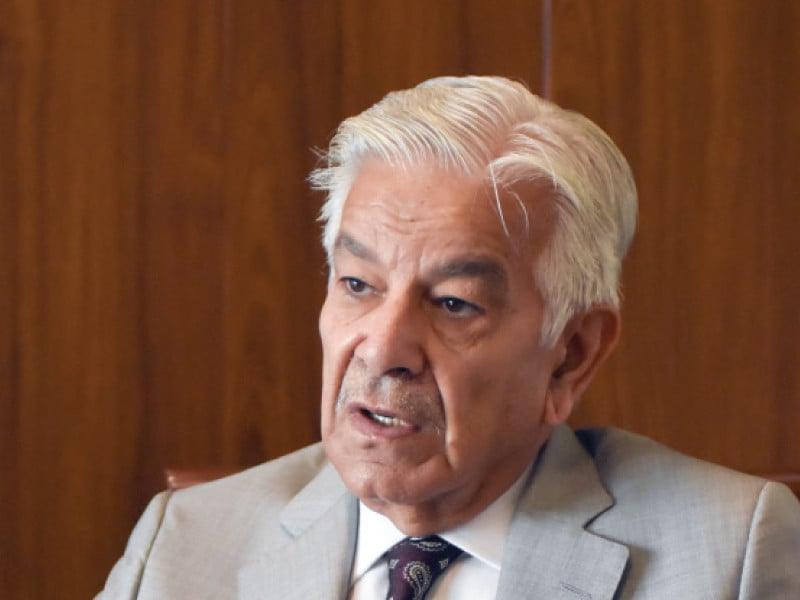The Federal Defense Minister Khawaja Asif has said that if conversations are held between Pakistan and India, three key issues would be on the agenda.
Asif said that the dialogue would focus on Kashmir, terrorism and water -related concerns, talking to Geo News.
He pointed out that terrorism has been ongoing during the last 20 to 30 years.
The minister added that this is a golden opportunity for India and Pakistan to solve the problem of Kashmir.
Asif declared: “There are three main points: Kashmir, terrorism and water. These are long -standing problems in the last 76 years and must be addressed. Pakistan is the greatest victim of terrorism. This is a golden opportunity for both countries to solve the problem of terrorism. In Kashmir, this is a historical opportunity. Trump has approached the problem of the Kashmir, what has other marks.
Khawaja Asif emphasized that almost all wars between India and Pakistan have been on Kashmir.
“The conflict of two days ago was also due to Kashmir.
The Minister of Defense described him as a cruel irony that the country that has suffered the most of terrorism is blamed and attacked by it.
In the water dispute, he said that the problem had already been resolved under the 1960 Indus Water Treaty, which cannot be suspended.
Asif added: “The way we respond is evidence of our preparation. The strong answer we give has left them licking their wounds. Modi is being criticized in the Indian Parliament, their media reports and military reports reflect their pain. This is also a victory for us. Our forces have not achieved a victory as important as they did this time.”
Pakistan-India Pechaza
Pakistan and India agreed to high the full and immediate fire on Saturday after days of intense military exchanges that increased the fears of a large -scale conflict between the two neighbors with nuclear weapons.
The announcement was made for the first time by the president of the United States, Donald Trump, and then confirmed by Pakistan Prime Minister, Shehbaz Sharif, the Vice Prime Minister Ishaq Dar, the Minister of Foreign Affairs of the India, S. Jaishankar, and the Secretary of State of the United States Marco Rubio. The high fire occurred after missile attacks, drone raids and retaliation operations through the border.
Tensions exploded after a deadly attack on April 22 in Pahalgam, illegally occupied Indians Jammu and Kashmir (Iiojk), which left 26 civilians dead. India blamed the elements based in Pakistan without providing evidence; Islamabad rejected the claim.
India responded by closing the border with Wagah, revoking Pakistani visas and suspending the Treaty of Indo’s waters, moves Pakistan labeled as an “act of war.”
For May 6 to 7, Pakistan launched the Bunyan-Un-Marshals operation, which claimed to have demolished five Indian aircraft, including raffles, and intercepted 77 nose drones in Israeli origin.
The United States played a central role in facilitation of Backnel diplomacy. The Rubio Secretary and Vice President JD Vance held conversations with higher leaders from both countries, including premenstrual syndrome Shehbaz Sharif and Narendra Modi, as well as the senior defense and intelligence officials.
After Trump’s announcement, both countries suspended military activity in land, air and sea, although the accusations of rape of high fire were also informed from both sides of the control line (LOC).




